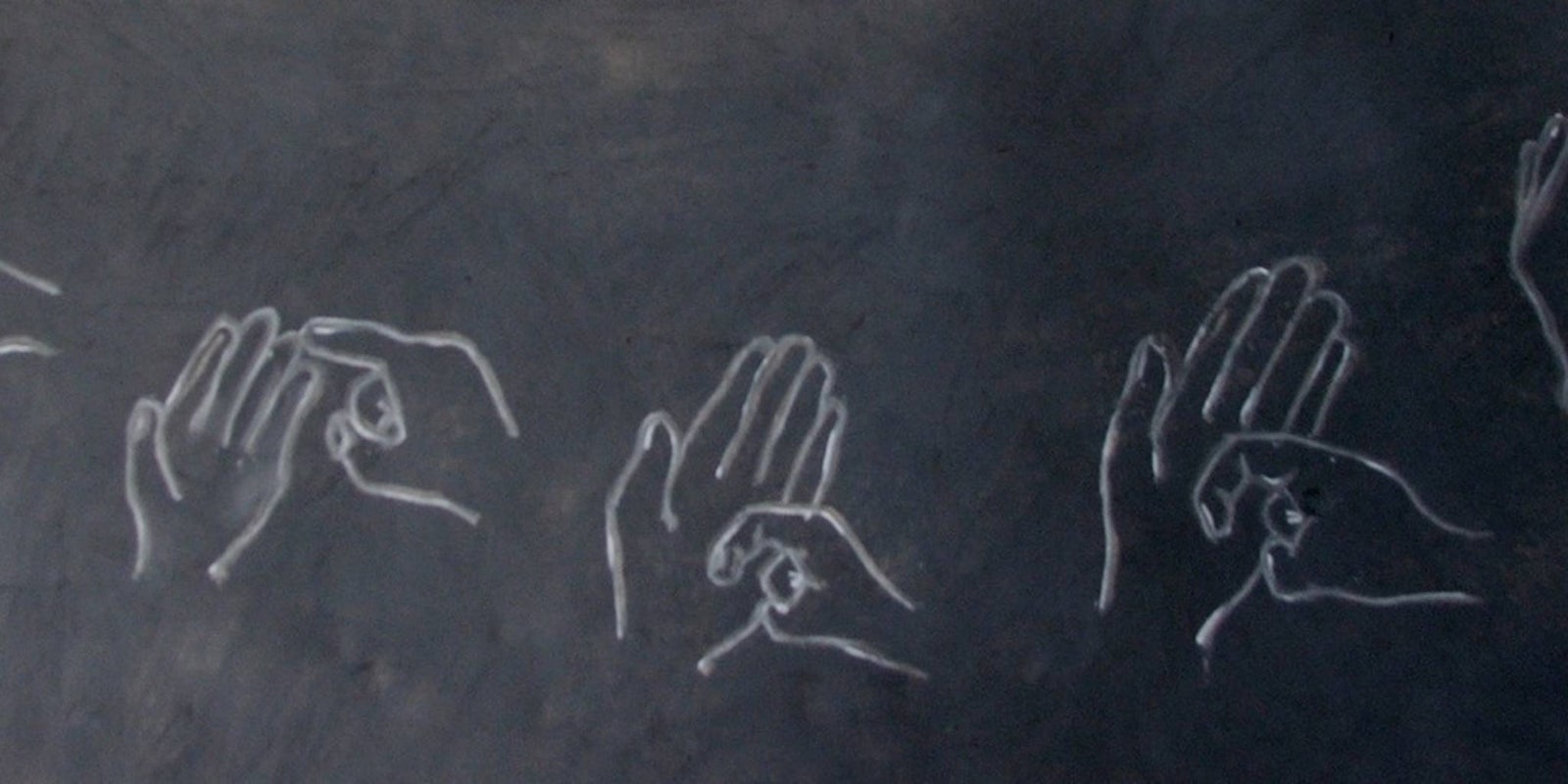Texting may be a non-verbal form of communication, but it isn’t ideal for most deaf people. Luckily, a new app may provide a digital connection to the hard of hearing—and it’s coming from the mind of an 18-year-old.
On Monday, Polish entrepreneur Mateusz Mach announced $150,000 in funding in his app Five, which he billed to Business Insider as “the world’s first messenger for deaf people.”
Mach built his app in 2015 primarily as a joke. The Polish teenager has an affinity for rap and wanted to develop a way to send custom hand signs that looked like the ones his favorite artists would throw. He recruited freelance coders and put together apps for smartphones and the Apple Watch so he and his friends could send signs back and forth.
It didn’t take long for an unexpected group of people to take to Five: the deaf and hard of hearing. Typing isn’t a natural mode of communication for many deaf people according to Mach, and his app provided them with a more familiar way of delivering their messages.
Mach began implementing a International Sign Language (ISL) dictionary into the app to give deaf users the options they needed to communicate. Now with funding behind him, the high schooler is set to hire American Sign Language (ASL) experts to appeal to American users. There are more than one-million deaf people in the United States, according to research from Gallaudet University.
There’s no questioning the ambition of the teenager, who has secured a partnership with the United Nations, but he isn’t alone in his idea; a keyboard app called Signily launched last year shortly after Five’s initial launch lets signers send off messages over mobile with ASL.
The Oregon Association of the Deaf has been petitioning the Unicode Consortium, the organization behind emoji, to add basic signs since last year. Until the request is adopted, apps like Five and Signily serve as worthwhile options for accessibility.
H/T Business Insider | Photo via butupa/Flickr (CC BY 2.0)


